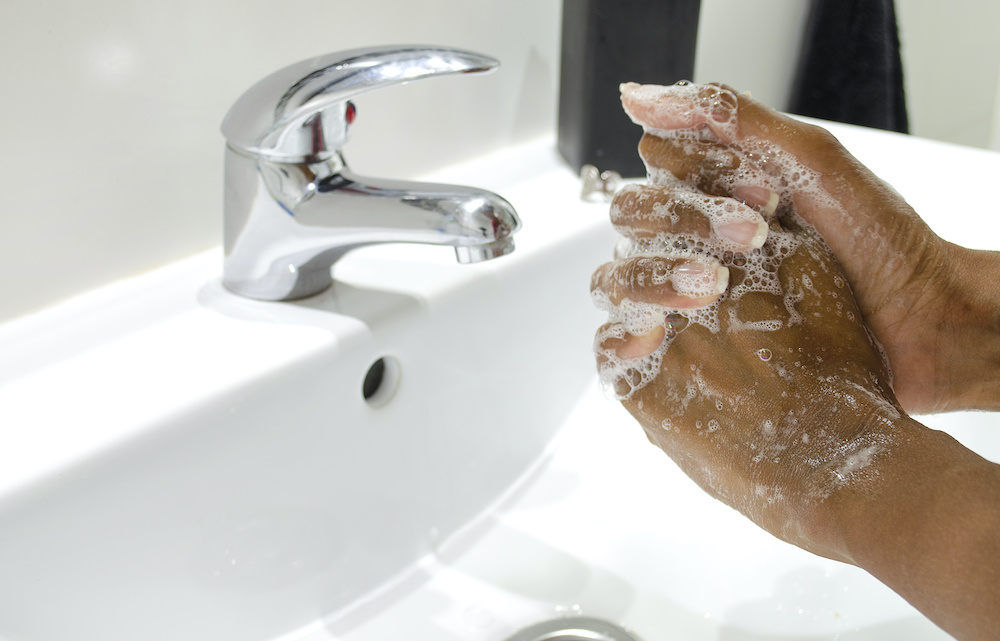Caring for Skin During Chemotherapy

Anyone facing the reality of undergoing chemotherapy treatments should consider how to care for their skin during the process and prevent infections. Dermatologists can be an excellent source of knowledge, encouragement, and guidance throughout this process. One of the biggest concerns for chemo patients is skin infections. Our skin is a protective layer against the outside world, which includes germs. Our skin is the largest organ in our body and vital in warding off germs that can cause infections. Because chemotherapy weakens the immune system, it becomes more vulnerable. Having a plan when entering chemotherapy treatments is a good way to prevent skin infections and stay on top of skin conditions that are common for chemo patients. All cancer patients should consult with their oncology team for any decisions related to chemotherapy.
Preventing Serious Skin Infections Due to Chemotherapy
Chemotherapy can take months or longer. During these extended treatment sessions, caring for the skin can prevent serious infections. The skin’s constant exposure to germs and toxins in the air and environment at home, work, and public spaces can be overwhelming to consider. Skin infections require antibiotics and treatments that should be avoided if at all possible during chemotherapy. Taking antibiotics can lead to yeast infections and other side effects, which may require different medications. When going through chemotherapy, if these extra things are avoidable, they should be.
Cancer patients know well how much skin is cut, poked, and irritated throughout the process. As the immune system weakens, these openings can cause rashes and infections, so having a plan in place for wound care and skin care can have a significant impact. Although these measures against skin infections apply to everyone, they are incredibly helpful for those facing chemotherapy, as their skin will be vulnerable and prone to infections without a routine in place and a commitment to follow through.
Topical Ointment for Skin Wounds
A topical antibiotic ointment on hand is highly recommended because it treats germs that cause common skin infections. The most common types of germs are Staphylococcus aureus and Streptococcus. These ointments are prescriptions, and although your dermatologist can prescribe them, anything for treatment care should be provided and cleared through your oncology team. There is no shortage of prescriptions during chemotherapy to help with side effects, but surprisingly, this is not one of them. Preventing skin infections is not at the top of the list, but it may be worth mentioning and discussing. Professional Dermatologists prescribe Mupirocin for patients with wounds because it helps the skin heal, making it worth exploring for treating skin during chemotherapy.
Keep Hands Clean During Chemotherapy Treatments
Although it can seem excessive, it is critical to keep hands washed and sanitized when undergoing chemotherapy treatments. Washing hands can prevent infections, but it also tends to leave skin dry and itchy. The risk of exposure to germs is high, and with a weakened immune system, the skin is significantly vulnerable. Obsessive hand washing is completely acceptable during chemo because any germs on hands that transfer to the face, nose, or mouth can be destroyed. Germs that get to those areas can make chemo patients very sick. Some situations where hand washing should not be skipped include after touching someone else’s hands, in public places where someone else may have touched an item, and on elevator buttons, escalator handrails, shopping carts, and just about anything someone else might have touched. Although you can’t always find a sink with warm water and soap, this is where hand sanitizer comes in handy.
As we learned with COVID-19, continual sanitizing and washing of hands are essential. Chemotherapy patients have even drier skin, so chapped skin must be treated to prevent cracking and infection. Using a moisturizer immediately following washing or sanitizing can prevent skin from becoming irritated. Using hand cream without perfumes and other irritating ingredients is key. Ask your oncology team and work with your dermatologists to find tried-and-true creams that other chemotherapy patients have used successfully.
Skip The Germiest for Now
One of the many adaptations people make during chemotherapy is avoiding things in their daily routines that have a higher risk of germs. The gym, public pools, nail salons, and most public places should be avoided for the duration of treatments. There is no purpose to expose oneself to more germs than necessary when the body is so vulnerable. Any signs of skin infections should be brought to the attention of your medical team so they can properly assess them and ensure they receive the care and attention they need. Avoiding oral antibiotics for skin infections is one way to help your body through chemotherapy without adding more medications to your routine, and many cancer patients have used these simple steps to do so successfully. Every cancer patient is unique, which is why anything related to chemotherapy treatments should be cleared through the oncology team.
Caring for the skin will always offer benefits. If you want to work with a local dermatologist in Atlanta, contact Dr. Sherrie Straughn at Buckhead Dermatology for a consultation.
